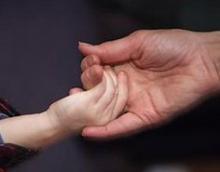Shabbat Shalom and welcome to Judeo Talk. The Torah Portion for this week is Parsha Matot-Masei, Numbers 30:2-36:13.
The key to understanding any Torah portion is to find the overarching theme of the narrative. As I have often pointed out, the seemingly random collection of stories and codified laws in a given portion almost always relate to one another thematically. Though there is no hard and fast form for a parsha, one of the more common conventions is to place a general rule at the beginning, followed by a much larger socio-political application of that rule. The two understandings of a mitzvah, the micro and the macro, act as concurrent, counter-balancing metaphors for one another.
In the case of Matot-Masei, the philosophical theme is that of oaths and obligations. The portion opens with a description of how fathers and husbands are meant to handle the oaths of their daughters and wives. Before we get too deep into this concept, I must once again adjust the focus of biblical sexism to fit into a modern context.
In the plainest terms, the Torah approaches daughters and wives as if they are essentially children by most accounts. They are considered incapable of making their own decisions, a concept that is abhorrent by modern standards. So, rather than throwing out this entire moral, we must look at the intent, or rather the heart, of what it's trying to express. For our purposes, it's not important that these rules are applied to women, but that they are applied to those who are considered incapable of making decisions for themselves. In the modern sense, we ought to apply these rules to those under our care who truly are not capable of making major life decisions, primarily our children before they are grown.
That said, the law in the Torah states that a lesser party (daughter, wife, etc) is only responsible for any promises or oaths if those oaths have not been refused by their corresponding authority figure. In short, young people ought to be allowed to make mistakes and not live with the full brunt of their consequences, providing someone deemed it necessary to caution them against such decisions.
Matot-Masei closes with the building of several cities outside of the Promised Land because God has decreed that none of the Israelites freed from Egypt are fit to live in the nation of the covenant. We are meant to see the parallel of this proclamation to the rules of oaths and children. The Israelites, children under God, made a pact with their creator to live under the law in exchange for peace, protection and a country of their own. Because they have so frequently broken that oath, the Israelites have essentially voided their contract with God, but only unto their first generation. When God tells them to build their cities, the phrase "for your little ones" is repeated often. The emphasis is meant to draw our attention to the intent of this decree. It is not so much a punishment as it is a means to safeguard the younger generation from the iniquities of their parents. Time and again, the Torah reinforces the belief that sins are not passed from one generation to another.
Ultimately, this Torah portion is about the responsibility we have for our own generation and the example we set for the next. Beyond that, it is a story of a bittersweet kind of hope. Though we may fail in our obligations as people of the law, there is no guarantee that our children will fail just the same.
